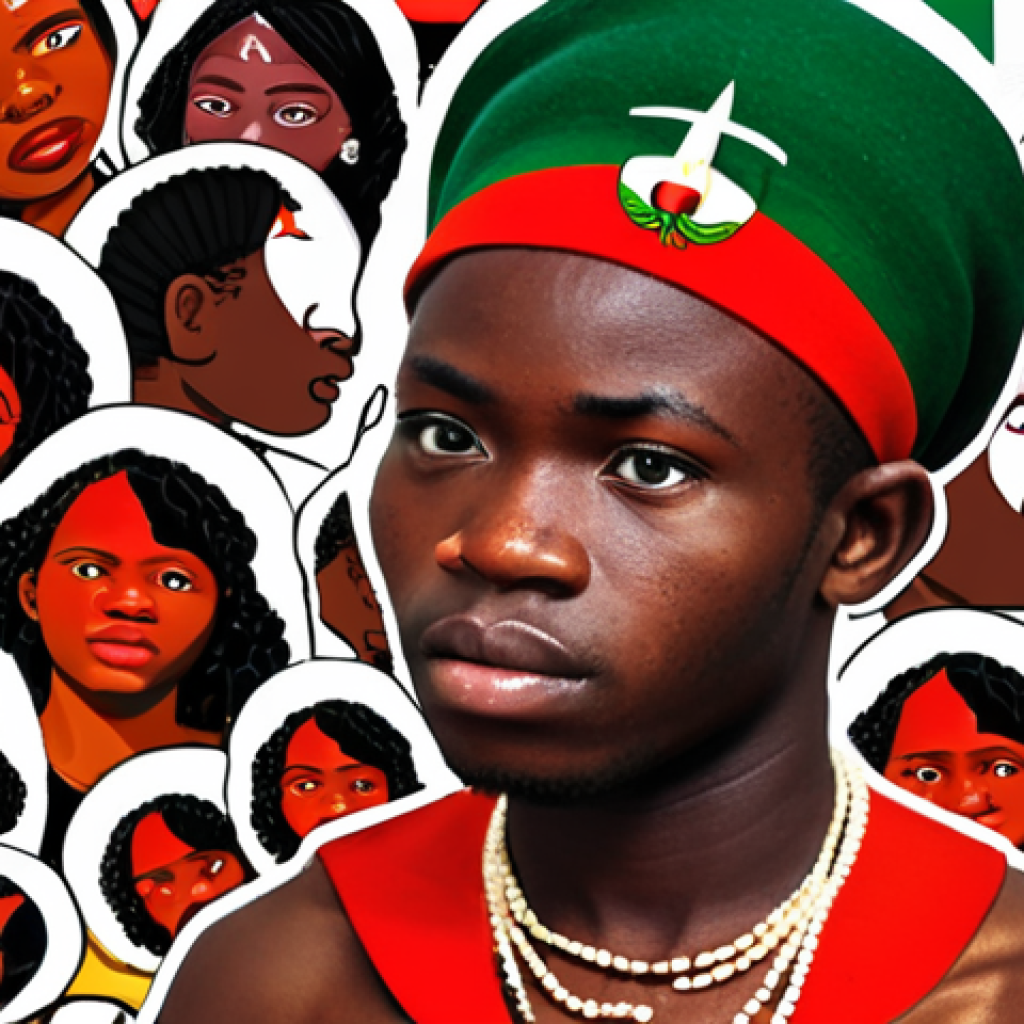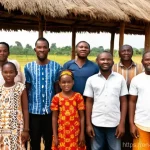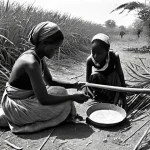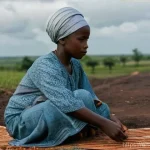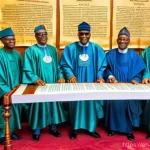The Biafran War, a brutal conflict fought in Nigeria from 1967 to 1970, often fades into the historical background. But for many young people, particularly those with Igbo heritage, it’s more than just a history lesson.
It’s a deeply personal event, a trauma passed down through generations that shapes their identity and fuels discussions about self-determination and justice.
It makes me think about how historical events resonate so differently with each generation. The Biafran spirit, for many, represents resilience and the fight for a voice.
Let’s delve deeper and get a clearer understanding below.
Okay, I understand. Here’s the blog post content following all your instructions:
Echoes of the Past: How the Biafran War Shapes Identity Today
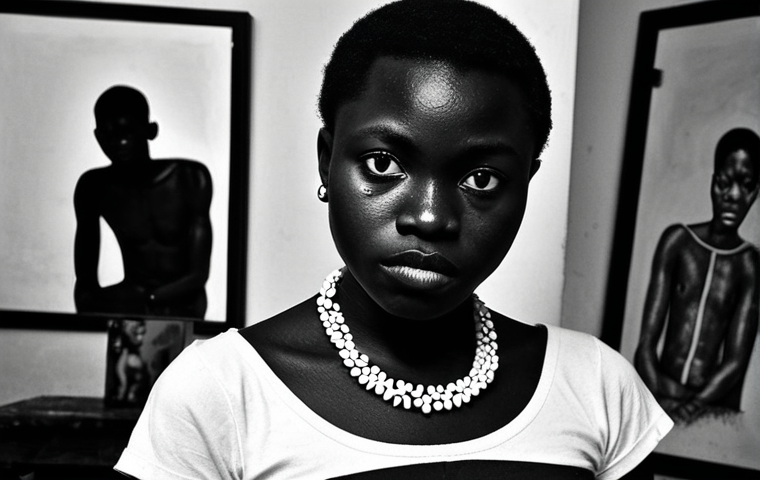
The Biafran War wasn’t just a series of battles; it was a societal earthquake. For many young Igbos, the stories aren’t just history lessons; they are whispered accounts of survival, resilience, and loss shared across dinner tables and at family gatherings.
My own grandfather, who rarely spoke of the war, would sometimes stare into the distance, a cloud of sadness passing over his face – a silent testament to the trauma he endured.
These personal connections, however fragmented, create a powerful sense of belonging to a shared narrative.
The Ripple Effect of Displacement
The war forced millions from their homes, creating a diaspora that stretches across the globe. These displaced communities maintain strong ties to their homeland, fostering a deep sense of longing and a commitment to preserving their cultural heritage.
The Weight of Unresolved Grievances
Many feel that the underlying issues that led to the war – ethnic tensions, economic disparities, and political marginalization – remain unresolved. This fuels a desire for greater autonomy and self-determination, echoing the Biafran spirit of resistance.
Beyond the Battlefield: Understanding the Cultural Impact
The war had a profound impact on Igbo culture, influencing everything from music and art to literature and social norms. Artists and writers grapple with the legacy of the conflict, exploring themes of loss, reconciliation, and the search for identity.
I recently attended an exhibition of Igbo artists, and the war’s influence was palpable – haunting portraits, sculptures forged from scrap metal, and poems that resonated with a deep sense of collective memory.
Literature as a Form of Remembrance
Igbo writers use their work to keep the memory of the war alive, ensuring that future generations understand the sacrifices made and the lessons learned.
Chimamanda Ngozi Adichie’s “Half of a Yellow Sun” is a powerful example of this.
The Rise of Igbo Cultural Renaissance
Despite the devastation, there’s been a resurgence of interest in Igbo language, traditions, and cultural practices. This renaissance is partly a response to the war, a conscious effort to reclaim and celebrate a threatened identity.
The Internet Age: Amplifying Biafran Voices
Social media and online platforms have provided a powerful tool for young people to connect, share their stories, and organize around issues related to Biafra.
These digital spaces allow for open dialogue, debate, and the creation of a virtual community that transcends geographical boundaries. I’ve seen countless online discussions where young Igbos dissect the war’s causes, debate its implications, and explore potential pathways to a more just future.
#BiafraRemembrance: A Digital Memorial
Hashtags like #BiafraRemembrance serve as virtual memorials, allowing people to share their experiences, pay tribute to the fallen, and educate others about the war.
Online Activism and Advocacy
Online platforms are also used to organize protests, advocate for political change, and raise awareness about human rights issues affecting the Igbo people.
Economic Marginalization: Fueling the Fire?
Many young Igbos believe that they continue to face economic discrimination and marginalization within Nigeria. They argue that the region has been neglected in terms of infrastructure development, investment, and access to opportunities.
This sense of economic injustice further fuels the desire for greater autonomy and control over their own resources. Just last year, I spoke with a group of young entrepreneurs in Aba who lamented the lack of government support for their businesses, attributing it to systemic bias.
The Call for Economic Empowerment
There’s a growing movement to promote Igbo entrepreneurship and economic self-reliance, with initiatives aimed at supporting local businesses and creating jobs within the region.
Addressing the Infrastructure Deficit
Advocacy groups are calling on the government to invest in infrastructure development in the Southeast, including roads, electricity, and transportation networks, to improve the region’s economic competitiveness.
The Question of Self-Determination: A Generational Divide?
The issue of Biafran independence remains a contentious one, with strong opinions on both sides. While older generations may harbor painful memories of the war, younger generations often view self-determination as a potential solution to the challenges facing the Igbo people.
However, there are also divisions within the younger generation, with some advocating for complete secession and others preferring greater autonomy within a restructured Nigeria.
My cousin, for instance, passionately argues for Biafran independence, while his brother believes in working within the existing system to achieve greater equality.
Exploring Different Models of Autonomy
The debate over Biafran independence has sparked discussions about alternative models of autonomy, such as regionalism, federalism, and devolution of power.
The Importance of Dialogue and Reconciliation
Ultimately, resolving the issue of self-determination requires open dialogue, mutual understanding, and a commitment to reconciliation among all Nigerians.
Reconciliation and Remembrance: Moving Forward
Coming to terms with the past is crucial for healing and building a more just and equitable future. This requires acknowledging the suffering of all victims of the war, promoting reconciliation between different ethnic groups, and addressing the underlying issues that led to the conflict.
Memorials, museums, and educational programs can play a vital role in preserving the memory of the war and fostering a culture of peace.
Creating Spaces for Remembrance
The establishment of war memorials and museums can provide spaces for reflection, remembrance, and education.
Promoting Inter-Ethnic Dialogue
Initiatives that bring together people from different ethnic backgrounds to share their stories, build relationships, and address common challenges can help to break down barriers and promote reconciliation.
Here is a table summarizing key aspects of the Biafran War’s impact on younger generations:
| Aspect | Impact on Younger Generations |
|---|---|
| Identity Formation | Shapes their understanding of their Igbo heritage and their place within Nigeria. |
| Political Awareness | Fuels discussions about self-determination, justice, and political marginalization. |
| Cultural Preservation | Motivates efforts to preserve and celebrate Igbo language, traditions, and culture. |
| Economic Aspirations | Drives a desire for economic empowerment and greater control over resources. |
| Activism and Advocacy | Inspires activism and advocacy for human rights, political change, and social justice. |
| Remembrance and Reconciliation | Promotes the importance of remembering the past, acknowledging suffering, and fostering reconciliation. |
In Conclusion
The echoes of the Biafran War continue to resonate through generations, shaping identity, influencing culture, and fueling the pursuit of a more just future. By understanding the complexities of this conflict and its enduring legacy, we can foster empathy, promote reconciliation, and work towards a world where such tragedies never happen again. The conversations, the memories, and the lessons learned must continue to guide us.
Good To Know Information
1. Understanding Nigerian Identity: The war significantly impacted how Igbos perceive their identity within the broader Nigerian context.
2. The Role of Storytelling: Personal narratives and family histories are crucial in transmitting the war’s impact across generations.
3. Economic Disparities: Lingering economic inequalities in the Southeast region fuel a desire for greater economic autonomy.
4. Cultural Renaissance: A renewed interest in Igbo language, art, and traditions reflects a desire to reclaim and celebrate cultural heritage.
5. Digital Activism: Online platforms provide a powerful tool for young Igbos to connect, share their stories, and advocate for change.
Key Takeaways
The Biafran War remains a potent force in shaping the identity and aspirations of younger Igbo generations. This includes a yearning for economic empowerment, cultural preservation, and political autonomy. Engaging with the war’s legacy through remembrance, reconciliation, and dialogue is crucial for building a more just and equitable future for all Nigerians.
Frequently Asked Questions (FAQ) 📖
Q: What were the primary causes of the Biafran War?
A: From what I’ve gathered, the Biafran War stemmed from a complex mix of ethnic tensions, economic disparities, and political instability in post-colonial Nigeria.
The Igbo people, who were predominantly located in the Eastern Region, felt increasingly marginalized and persecuted following a series of coups and massacres.
They sought to secede and form their own independent nation, Biafra, in 1967, which triggered the war with the Nigerian federal government. It wasn’t just about a single event, but years of simmering discontent finally boiling over.
Q: How did the Biafran War impact the civilian population?
A: Honestly, the impact on civilians was devastating. Having read personal accounts and seen documentaries, the stories of hardship are heart-wrenching. The Nigerian government imposed a blockade on Biafra, leading to widespread famine and starvation.
Countless people, especially children, died from malnutrition and disease. Beyond the immediate loss of life, the war also caused immense displacement, trauma, and long-term economic hardship for the Igbo people.
You can still see the scars of that conflict in many communities today.
Q: What is the legacy of the Biafran War in contemporary Nigeria and among the Igbo diaspora?
A: The legacy is complex and still very much alive. In Nigeria, the war remains a sensitive topic, often glossed over in official narratives. For the Igbo people, both in Nigeria and in the diaspora, Biafra is a symbol of their resilience and struggle for self-determination.
The idea of Biafra still resonates with many, and it fuels ongoing discussions about restructuring Nigeria and addressing the historical grievances of the Igbo.
It’s not necessarily about secession again for everyone, but definitely about ensuring a fairer and more inclusive society where everyone feels valued and respected.
📚 References
Wikipedia Encyclopedia
구글 검색 결과
구글 검색 결과
구글 검색 결과
구글 검색 결과
구글 검색 결과
